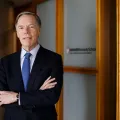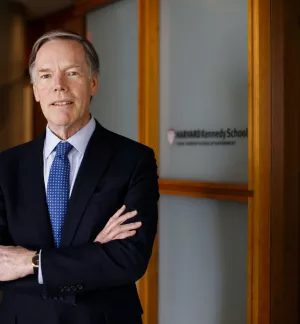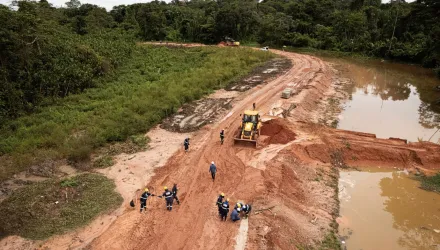Francois Hollande’s dramatic victory in Sunday’s French presidential election could turn out to be one of this year’s most significant turning points for both Europe and the United States. France matters in the world, especially on some of the most important international challenges — the euro zone crisis, Afghanistan, Iran, and Syria. It belongs to all the right clubs as a UN Security Council permanent member, a nuclear weapons power, owner of one of the world’s most capable militaries, and an influential force in Africa and the Middle East. Only the second Socialist to gain the French presidency since World War II, Hollande managed a brilliant electoral victory that may not amount to an earthquake but has global leaders wondering how he may redirect French policy on critical issues.
The impact will be most profound in Europe, where France and Germany have co-directed the affairs of the continent for decades. German Chancellor Angela Merkel and Hollande’s predecessor, Nicolas Sarkozy, formed an unlikely but effective duo who forced the European Union to accept a bitter regimen of austerity as the Greek debt drama evolved into a full-blown European economic crisis during the past two years.
Hollande’s principal campaign promise was to reverse French and European policy and turn to an FDR-like stimulus package to promote state-led spending and employment programs for France’s massive number of unemployed. One of the reasons the European Union has barely skated through the crisis is because Merkel and Sarkozy stood together to face down their many critics. If Hollande now challenges German leadership on this core issue, however correct he may be, it could open up an ideological rift at the heart of the EU at the very moment it seeks to climb out of a deep recession.
Hollande’s victory is also consequential for the United States. Sarkozy was the most pro-American French leader in 70 years. He transformed France from a diffident and sometimes troublesome American ally into one of our strongest and most reliable friends in the world. Washington is now asking if Hollande will reverse French policy on three important American priorities — Iran, Afghanistan, and NATO.
Ironically, France under Sarkozy had become the toughest opponent of Iran’s evolving nuclear program — more unyielding than even Barack Obama or George W. Bush. Now that the nuclear talks with Iran are underway, the United States is relying on France to help sanction and pressure Iran to give up its nuclear ambitions. Should Hollande adopt a less aggressive course, it could open the door to Russia and China to weaken Western pressure and possibly let Iran off the hook.
Afghanistan is another leading issue where a Hollande government may make a critical difference. Hollande promised during the campaign to bring all French troops home by the end of this year. The United States and NATO, however, decided that all forces would stay until 2014 — a critical source of leverage in convincing the Taliban to negotiate seriously with the Afghan government to end the war. If France bolts ahead of the NATO allies, it will cause a crisis at the US-hosted NATO summit in Chicago in two weeks during Hollande’s inaugural presidential trip to the United States.
Hollande’s most interesting early decision may involve a NATO issue from the past. Sarkozy reversed 40 years of French policy by returning France to NATO’s Integrated Military Command. This was a big deal for NATO, still the most important American military alliance worldwide. France’s return ended decades of sniping between the United States and France over the American role in Europe. Hollande’s Socialist Party strongly opposed Sarkozy on this decision and has questioned NATO’s missile defense plans for Europe. Will Hollande emulate Charles de Gaulle by reasserting French independence and reducing France’s support at NATO?
Hollande’s ascendancy has sparked a major European debate over the wisdom of continued austerity versus stimulus. Which will provide the fastest road to recovery? Along with renewed political chaos in Greece following its inconclusive election this weekend, European stability is once more in question. Hollande may turn out to be just what Europe needs — a new voice with fresh ideas to spark an economic revival. Whatever his impact, Americans shouldn’t be disinterested spectators. What happens in Europe — our largest trade partner and investor and home to our most important alliance — really matters to us. That is one reason why Francois Hollande’s victory is so important to our side of the Atlantic.
Burns, Nicholas. “The Hollande effect.” The Boston Globe, May 10, 2012





